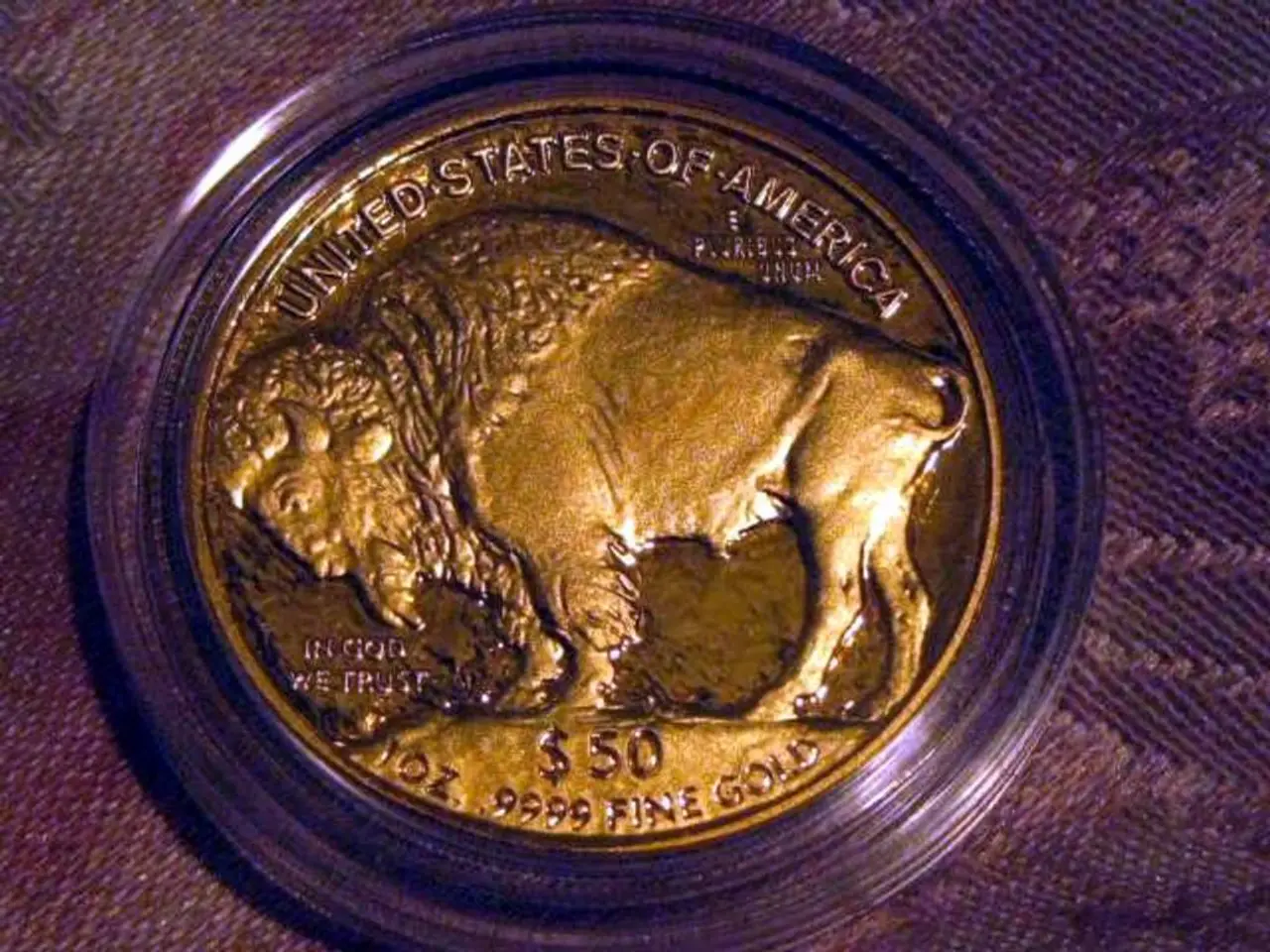Trump's Digital Asset Endeavors During Tenure Spark Curiosity
Title: Trump's $320M Cryptocurrency Venture: A Potential Storm in the Financial World
Key Points:
- President Trump's entry into the cryptocurrency market causes ripples with unconventional presidential financial behavior
- Regulatory forces and market implications loom large
The Trump Administration Takes the Crypto Plunge
President Trump's foray into the world of digital currency has sparked a flurry of activity, challenging traditional presidential financial practices. With a whopping $320 million crypto venture on the line, the Trump administration is stirring up intense debate about its potential effects on financial markets and governing norms.
A Departure from Presidential Custom
This crypto escapade marks a departure from standard presidential conduct, casting a long shadow of speculation over its repercussions on financial markets and ethical principles.
Crypto Guru on the Beat
John Kojo Kumi, a renowned cryptocurrency researcher and writer, brings a wealth of information and insights to the ever-developing cryptosphere. With numerous accolades under his belt, he delivers an impressive blend of expertise in emerging startups, tokenomics, and market dynamics within the blockchain world. Kumi holds a Bachelor of Arts in Geography and Rural Development from Kwame Nkrumah University of Science and Technology, Kumasi. As a Crypto News Writer and the Registrar at the Commission on Human Rights and Administrative Justice, he champions transparency and a passion for blockchain's transformative potential.
- Warren Throws Shade at Crypto Wallet Exemption in GENIUS Act
- Ink Introduces New Token with 1 Billion Cap
- Alpha Takes Hit After WEMIX Delisting
- Question Marks Over Lee Jae-myung's Election Authenticity
- U.S. Senate Approves GENIUS Act to Regulate Stablecoins
- U.S. House Advances Crypto Legislation Amid Time Limitations
- Fact Check: Elon Musk's Questionable Post on Epstein Files
- Pump.fun Eyes $1 Billion ICO Amid Revenue Decline
A Familiar Fringe of Controversy
Trump's deep-rooted financial interests in cryptocurrency—holding billions of governance tokens and earning tens of millions from token sales—have stirred up conflict of interest concerns. His family's close ties to the crypto industry while serving as president has caught the attention of government watchdogs and lawmakers alike. This scenario could open the door for foreign and private interests to influence administrations that regulate digital assets, potentially creating ethical and national security issues[1][2].
A Swing in Regulatory Approach
The Trump administration has attempted to soften the previous administration's regulatory stance on cryptocurrencies, signaling a shift toward lighter regulation. Trump signed an executive order designed to bolster the U.S. crypto industry by eliminating perceived regulatory barriers. The executive order's working group will propose a comprehensive federal regulatory framework that may include a national Bitcoin reserve[1]. Yet, critics contend that this lax regulatory approach caters exclusively to wealthy investors and insiders, often at the expense of everyday investors, potentially making the crypto market a breeding ground for manipulation and scams[3].
A Regulatory Rollercoaster
Trump's controversial crypto dealings have set off a chain reaction in both Congress and the media. Proposed legislation like the CLARITY Act aims to tighten the leash on political figures' involvement in cryptocurrency, addressing concerns about conflict of interest and potential risks to market integrity. However, the White House has reportedly shown resistance to targeting Trump directly in this legislation, signaling ongoing negotiations and political sensitivities regarding regulating crypto ventures connected to the president[4].
Ethical Pitfalls and Foreign Influence
World Liberty Financial's crypto-related ventures—including a significant $2 billion investment from a UAE-backed fund and large token sales around major political events—serve as a reminder of the colossal scale and international scope of Trump's crypto involvement. This raises concerns about foreign influence in U.S. financial markets and the potential for regulatory gaps when overseeing cross-border crypto transactions[1][4].
Conclusion
President Trump's participation in the cryptocurrency market through World Liberty Financial presents a constellation of challenges:
- Raised questions about ethical standards, oversight, and potential conflicts of interest.
- A shift toward lenient regulation, reversing previous policies.
- Intense congressional scrutiny and the possibility of increased regulation to protect both markets and political norms.
- Potential vulnerabilities to market manipulation and scam artists.
- Potential risks of national security concerns and foreign influence on U.S. markets.
These interwoven aspects underscore the intricate interplay of innovation, political interests, and regulatory governance in the realm of crypto[1][2][3][4].
- The cryptocurrency industry is abuzz with news about President Trump's $320 million venture, with experts discussing its potential impact on market dynamics, regulations, and ethical norms.
- Blockchain expert John Kojo Kumi, a Crypto News Writer and Registrar at the Commission on Human Rights and Administrative Justice, offers valuable insights on the venture, along with his expertise in emerging startups, tokenomics, and market dynamics.
- This venture has sparked ongoing debates in political circles and business communities, with questions swirling around potential conflicts of interest and the influence of foreign and private interests on the administration.
- With increasing awareness of cryptocurrency regulations, legislative bodies are proposing measures like the CLARITY Act to provide tighter checks on political figures' involvement in crypto and protect market integrity.
- The intricate interplay of innovation, political interests, and regulatory governance in the crypto world is becoming more apparent, highlighting the need for transparency and ethical practices to navigate potential pitfalls in the fast-evolving digital asset market.







